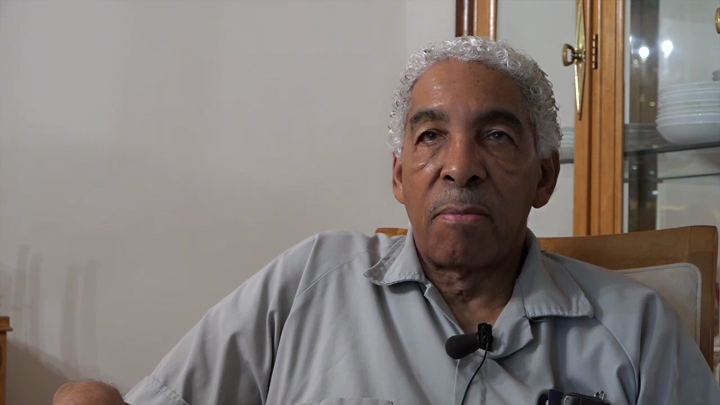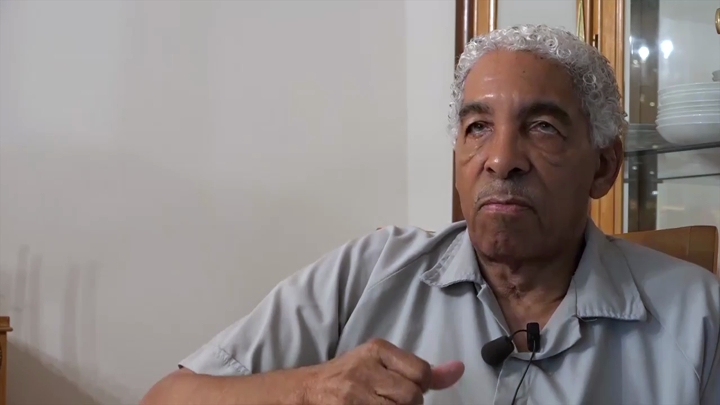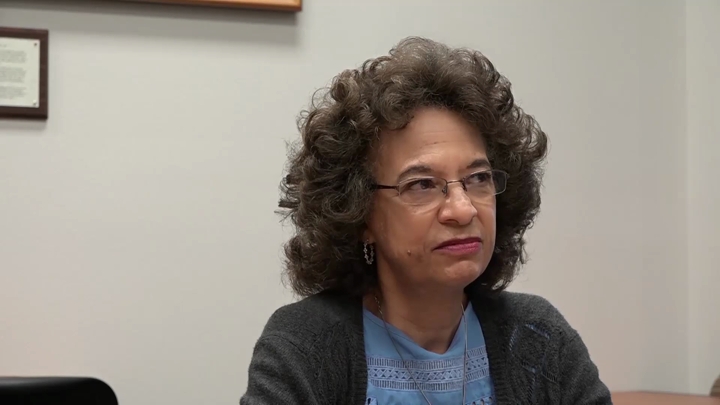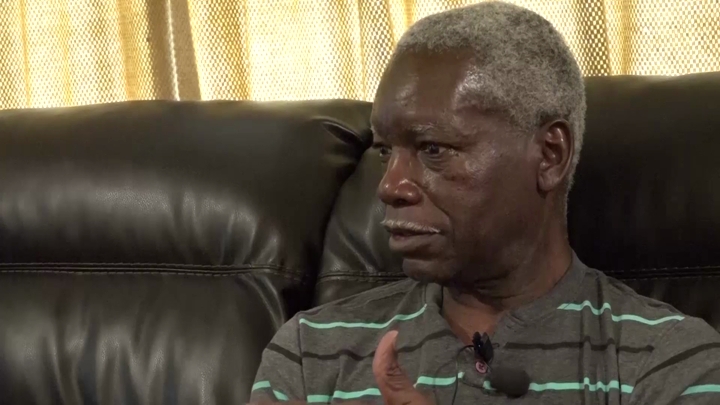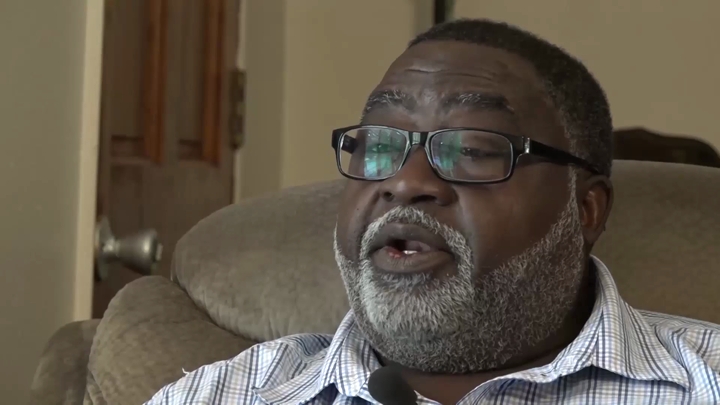Cross / Segregation in Washington, D.C.
sign up or sign in to add/edit transcript
Cross: We went to every restaurant downtown in Washington D.C. and they put me out of every one of them. I could not eat. They even sent a dishwasher out of the kitchen to tell me that I couldn’t eat in there. I said I could not believe this. Here I am serving my country and I’m in Washington D.C. and I can’t eat nowhere. It’s segregated. I said, that’s hard to believe. I never thought it, but anyway, I told them I noticed it was integrated at the bus station. So that’s the only place we’re going to be able to eat together so let’s go back to the bus station. So, we went there and had a meal. Then, we said let’s take in a movie because it was getting kind of late in the evening. So, every movie that we went to they said I couldn’t go. I’m saying what in the world? We were at one of the movies and they said you can’t. I said, “Where can I go to a movie?” They said, “Well, there’s some black movies out on 145th Street or something.” It was way out somewhere. Had to have a cab or something. I said, “That’s it.” She said, “Yes.” We were leaving that movie and a Marine sergeant came up and he was drunk. He said, “They wouldn’t let you in that movie?” I said, “No, they wouldn’t let me in there.” He said, “I’m going to go over there and pull her through that hole.” That little circle over—he said, “I’m going pull—I said, “No, don’t do that.” We didn’t know him and so we got out of there and started walking on down the street. After a while we heard sirens going—you know, police rushing up there. I don’t know what he did because I didn’t go back to see, but I guess he tried to pull that woman through that hole. Anyway, it was a big commotion and everything, so we got as far away as we could. Then the next day we went places like the White House. We went to Washington’s Monument and we went to the Lincoln’s Memorial, places like that. We went to the U.S. Treasury Department and see them printing all this money on these trays and all that stuff. After a while we said, well, let’s go to the USO. Well we went to the USO and I was the only black in there and somebody came up to me and said, you know, there’s a black USO. Told me where it was located and all of that and I said, “I don’t want to go to the black USO. I want to go to the white USO.” So, I stayed in there. Nobody tried to put me out or anything, but I was the only black in the whole place. So, that was our experience going to Washington D.C. and I was real disappointed because when we would be in these foreign countries like Cuba and places, you know, we could go everywhere together. Then we’d get back to the United States—and the same way about Jacksonville. That’s where Camp Lejeune is located, in Jacksonville, a little old small town. We couldn’t go together in Jacksonville because it was segregated and so—sometimes I’d go in town. See, Walker was black and so he and I would go to the colored part of town, but most of the time we just stayed on the base because we wanted to be together. So, we would just go to the slop chute and get us a case of beer a piece and we’d just sit there and drink it all up and go back to the barracks. That was my experience in the military.


